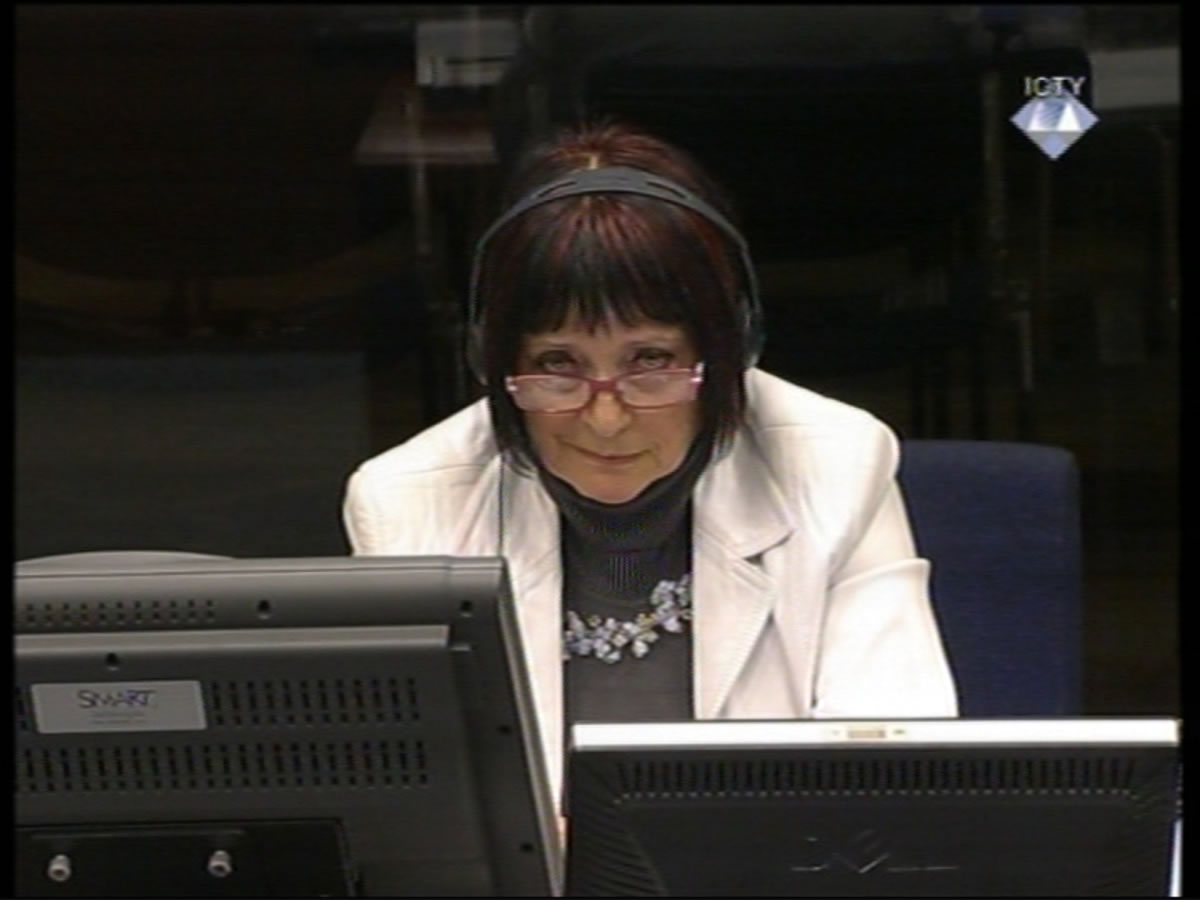Home
DEFENSE WITNESS OFFENDED ‘PERSONALLY AND PROFESSIONALLY’
The prosecution contests the expertise and methodology used by Zorica Subotic, Radovan Karadzic’s ballistics expert. When the prosecutor put it to her that she had deliberately ignored a vast quantity of evidence in her analysis of the artillery incidents in Sarajevo which might lead to wrong conclusions, Subotic said it was a ‘professional and personal insult’
 Zorica Subotic, defence witness of Radovan Karadzic
Zorica Subotic, defence witness of Radovan Karadzic At the trial of former Republika Srpska president Radovan Karadzic, the prosecution contested the expertise and methodology used by the defense ballistic expert Zorica Subotic in her three expert reports that analyze all the artillery and modified air bomb incidents, including the Markale massacres from 1994 and 1995.
In the first part of the cross-examination, prosecutor Katrina Gustafson noted that the defense expert had misinterpreted the results of the investigations conducted at the scenes of artillery incidents. In the case of the shelling of the water queue in Dobrinja in July 1993, Subotic implied that the Bosnian police had ‘had advance notice’ that an incident would occur. Subotic corroborated her claim by a statement made by one of the witnesses who said that before the incident a police officer warned the people in the queue not to gather there.
The prosecutor noted that the policeman didn’t warn the people queuing for water because he had received a tip that the area would be shelled, but because Dobrinja was regularly shelled at the time. Subotic didn’t reply directly to the suggestion, trying to change the topic. ‘Dobrinja was not shelled, there was fighting going on there’, she said.
On 12 July 1993, 13 persons were killed and 14 were wounded in the shelling of the water queue in Dobrinja. The Sarajevo investigators established that the shell had been fired from the VRS-controlled territory, from east-southeast.
Subotic stuck to her claims regarding the other mortar incidents, she had analyzed, including the shelling of the football pitch in Dobrinja on 1 June 1993 in which more than ten people were killed and about 100 people were wounded, the shelling of Alipasino Polje on 22 January 1994 (six children were killed as they played in the snow and five people were wounded), and the attack on a humanitarian aid queue in Dobrinja on 4 February 1994, in which eight people were killed and at least 18 were wounded.
The bearing of the shells established by the Sarajevo ballistic experts indicated that the projectiles had been fired from the VRS positions. According to the defense expert, such findings were ‘physically impossible’. Local investigators failed to do their jobs properly, Subotic claimed. They either misinterpreted the marks left by the shells, failed to accurately find north, or it was impossible to verify their findings because so much time had passed…
The prosecutor put it to the witness that she had deliberately ignored a vast quantity of evidence in her analysis of the artillery attacks, which might lead those who read her reports to wrong conclusions. The witness replied that the suggestion was a ‘professional and personal’ insult. After prosecutor Gustafson completed her part of the cross-examination, another prosecutor, Fergal Gaynor, continued. He will cross-examine Karadzic’s defense expert about the reports on the use of modified air bombs and the Markale incidents.
Linked Reports
- Case : Karadzic
- 2013-05-15 KARADZIC’S EXPERT SPECULATES ABOUT MARKALE EXPLOSIONS
- 2013-05-14 DEFENSE’S BALLISTIC EXPERT: ‘DISTORTED MIRROR-IMAGE’
- 2013-05-13 MARTIC’S DIAGNOSIS OF MILAN BABIC’S MENTAL HEALTH DISMISSED
- 2013-05-21 PROSECUTION OFFERS ‘MORE LIKELY SCENARIO’ FOR MARKALE 1
- 2013-05-22 PROVING WHAT DIDN'T HAPPEN IN MARKALE II
- 2013-05-22 WITNESS KNEW NOTHING
